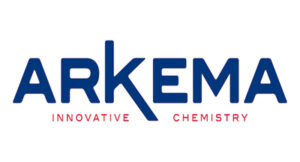Arkema and Polymem win the ACS Team Innovation Award
Colombes, France – At the American Chemical Society (ACS) ceremony held on August 23, Arkema and Polymem received the Team Innovation Award for their collaborative development of a new generation of ultrafiltration membranes made from innovative Kynar PVDF resins. This exciting development is the result of joint teamwork at Arkema’s French and American research centers together with complementary application research by Polymem. The new membranes are currently showcased in the wastewater treatment plant at Toulouse Metropole (France).
The new generation of ultrafiltration membranes is produced by Polymem a French manufacturer of modules for water filtration, and made from a specific innovative Kynar PVDF resin from Arkema, a global leader in fluoropolymers. This material demonstrates outstanding long term resistance to oxidants and exceptional mechanical strength in a microporous structure. The water to be treated passes through the microporous fibers, similar to hollow spaghetti under one millimeter in diameter, to be ultra-filtered with the scale of the pores in the 10 to 20 nanometers range.
Repeated, long-term cleanability is a key feature of these membranes. Moreover, due to the long lasting hydrophilic property of the membranes, filtration throughput is high while cleaning frequency is between 20 and 30 percent lower than with other polymer materials.
“Working hand in hand with Polymem and downstream users enables us to move faster and to accomplish far greater results than simply working alone. It is an outstanding example of a market driven solution” said David Silagy, general manager for fluoropolymers at Arkema.
“In Polymem, we are proud of this strategic and fruitful partnership with Arkema and are honored with this award granted by the American Chemistry Society” adds Jean-Michel Espenan, president of Polymem.
The new membranes were first tested at the Ginestous-Garonne water treatment plant commissioned in 2020.
“It is an extremely safe system. After passing through the membranes, all suspended solids and any elements in the order of 15 nm including bacteria and viruses are eliminated. The system thus perfectly fulfills its role regarding everything that is pathogenic, offering the best guarantees to prevent issues of quality non-conformity” stated Julie Ducrot, process and water treatment engineer at the Toulouse Métropole Cycle de l’Eau Department. “The treated wastewater we obtain is top quality (index A) that is entirely suitable for its intended use, namely currently just the watering of green spaces (within the facility as well as the nearby golf course).”

